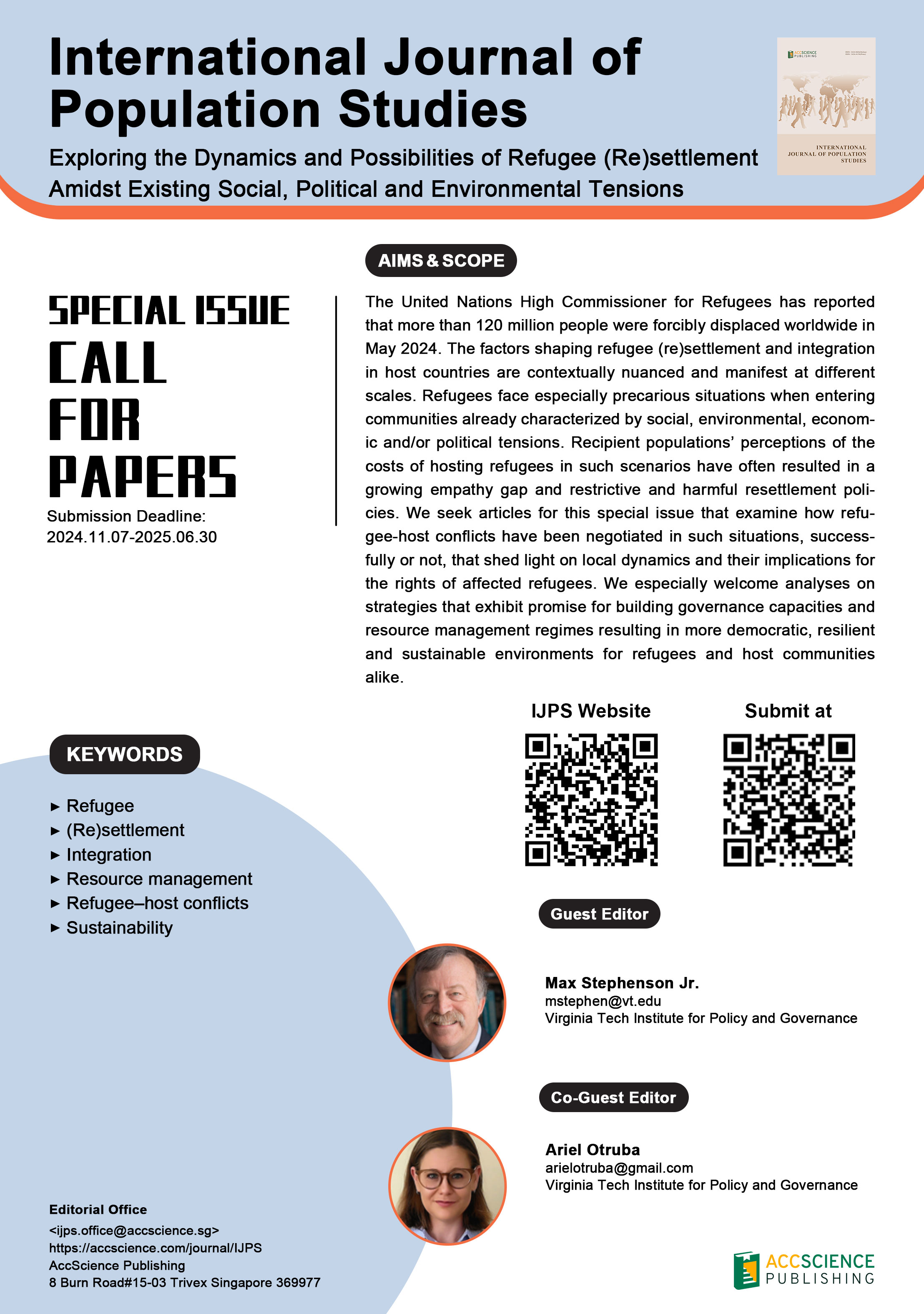Exploring the Dynamics and Possibilities of Refugee (Re)settlement Amidst Existing Social, Political and Environmental Tensions

The United Nations High Commissioner for Refugees has reported that more than 120 million people were forcibly displaced worldwide in May 2024. The factors shaping refugee (re)settlement and integration in host countries are contextually nuanced and manifest at different scales. Refugees face especially precarious situations when entering communities already characterized by social, environmental, economic and/or political tensions. Recipient populations’ perceptions of the costs of hosting refugees in such scenarios have often resulted in a growing empathy gap and restrictive and harmful resettlement policies. We seek articles for this special issue that examine how refugee-host conflicts have been negotiated in such situations, successfully or not, that shed light on local dynamics and their implications for the rights of affected refugees. We especially welcome analyses on strategies that exhibit promise for building governance capacities and resource management regimes resulting in more democratic, resilient and sustainable environments for refugees and host communities alike.
Tree-based intervention typologies and improvements in refugee displacement regions
Being able to breathe again: Impact of climate change on human mobility in Sub-Saharan Africa



